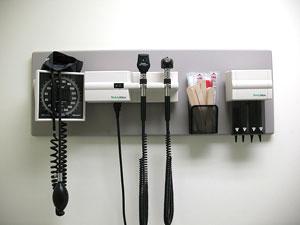Saving trillions in health care, one patient at a time
CC: kaytethinks / Flickr
The following is not a full transcript; for full story, listen to audio.
Last week, the Obama administration built momentum for an ambitious plan aimed at reducing the rising cost of health care. The administration announced $2 trillion in voluntary cost reductions over ten years by hospitals, doctors, drug makers, and insurance companies. But will this volunteer plan work? And where do you, the private citizen, come in when it comes to taking care of yourself and your healthcare?
How the debate on healthcare reform proceeds in Washington will make news over the next several months, if the process results in actual healthcare reform. The beginning of the conversation involved a coalition of industry, private sector, and federal players coming together for a voluntary series of cost-cutting moves that involve creating incentives for people and the healthcare industry to do better to control costs.
The way the debate began sounded very familiar to Henry J. Aaron, Health Economist at the Brookings Institution, and former Assistant Secretary of Planning and Evaluation at the Department of Health, Education and Welfare of the Carter administration when that administration attempted to deal with health.
"That’s the same group, more or less, that came together in 1977 with something that was then called ‘the voluntary effort’ to slow the growth of hospital spending. I think there is a key difference, however, between then and now. Whether it turns out to be significant in the long run, we will have to wait and see.
"The objective turned out to be, in 1977, that the effort was a device for stalling the administration’s effort to acheive economies, to stop legislation that would have put the federal government into the business of hospitals, pharmaceutical companies, and so on.
"This may be a rather different situation because I think the administration has been very successful in communicating an inclusive tone to the effort to fashion health care reform, bringing in members of Congress and major interest groups.
"The Takeaway" is a national morning news program, delivering the news and analysis you need to catch up, start your day, and prepare for what’s ahead. The show is a co-production of WNYC and PRI, in editorial collaboration with the BBC, The New York Times Radio, and WGBH.
PRI’s coverage of economic security is supported by the Rockefeller Foundation and its Campaign for American Workers.
